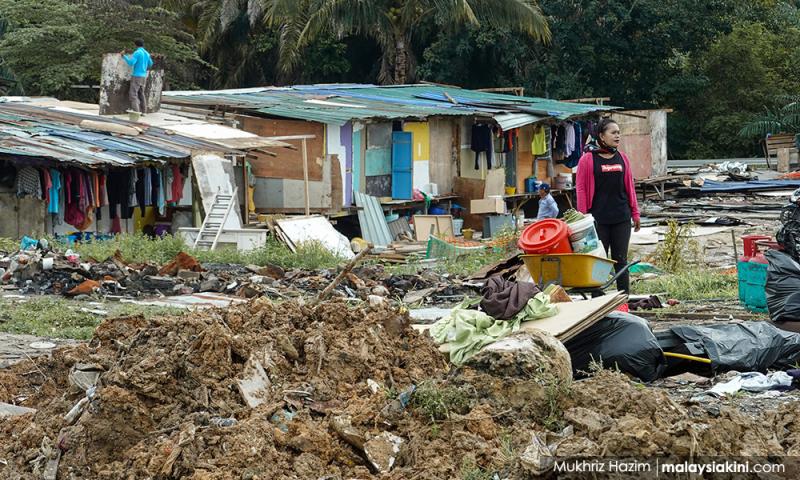LETTER | Kampung Sri Makmur, Gombak - the tip of an iceberg dilemma
LETTER | The news reports of the latest demolition exercise carried out at Kampung Sri Makmur on the fringes of Kuala Lumpur are indeed heartbreaking.
Demolishing the homes of over 200 residents (or squatters as the authorities would brand them) and leaving them in the lurch of destitution is most cruel, to say the least.
But as the authorities will (as always seems to be the case) attest, the more than 200 families are not legitimate residents. Only about two dozen are long-time “resident squatters” while the vast majority are illegal or include foreigners.
Land acquisition and delineation in order to be sold for profit and to enable development is going to be more intense in the years ahead for sure.
Squatters or the rise of illegal residencies is also bound to keep increasing for two reasons.
One, as the B40 category of the poor and struggling segment of society keeps expanding, the very hard-pressed will out of sheer desperation find plots of land to erect their sheds.
Some will also exploit such squatter communes to build houses/sheds and rent these out to migrant communes for sure.
Two, as the country’s dependency on foreign workers keeps increasing, housing will inevitably become a serious problem because these workers are not even paid the basic minimum wage in the country.
Either they rent premises that cost above RM1,000 per month and jam-pack the house with more than a dozen co-workers to make it affordable or seek out squatter communes dotting the country.
In the very first place, why do authorities allow squatters to mushroom?
Are the vigilant officers in the municipalities and land offices totally unaware of such communes being developed? It certainly takes months for people to clear the land, construct and move into such houses.
Many of these squatters or illegal communes even get piped water, electricity and roads. Who approved these amenities in the very first place?
To allow people to find abandoned plots of land, “gotong-royong” to clear the belukar and inhospitable terrain and build homes to stay for years before authorities move in to demolish them is most inhuman.
Why not ban illegal squatters from being erected in the first place? We can police religion. But we do not seem to have the same efficiency in enforcing town planning policies. Why?
Or why don’t the authorities identify parcels of land on the fringes of townships and have them developed with very low-cost, sparse homes to be rented out to the deserving poor at a minimum of about RM200 per month?
Our problem is the great disconnect in socio-economic planning.
While politicians say they are committed to providing proper housing to the growing B40 segment, we are not able to address the homeless, the migrant workers' housing needs, the unskilled or odd-job worker citizens who migrate from rural settings to find work in cities and address the misfortunes that suddenly befall upon people.
Meanwhile, we should also investigate if corruption is an underlying factor that booms and later bombs out such settlements.
We certainly are in need of a socio-economic development policy, like in many progressive or steadily progressing nations, where guaranteeing a decent roof for every family is the responsibility and function of government.
We have been independent for over six decades. Demolishing squatters and leaving people in the lurch is most cruel and a sign of failing to govern efficiently or suffering from too many disconnects within the government.
The views expressed here are those of the author/contributor and do not necessarily represent the views of Malaysiakini.
RM12.50 / month
- Unlimited access to award-winning journalism
- Comment and share your opinions on all our articles
- Gift interesting stories to your friends
- Tax deductable
